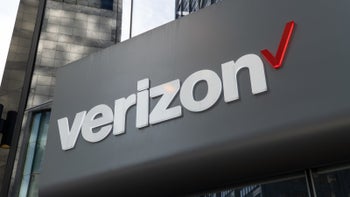TikTok's fate in the US hangs by a thread after US Court denies appeal

Recently, a panel of three federal appeals court judges unanimously upheld a law that could ban TikTok in the US. In response, ByteDance, the Chinese company behind TikTok, asked a US appeals court to temporarily block the law, which was signed by President Biden. However, TikTok's emergency injunction to delay its US ban has now been denied.
This means the deadline for TikTok to leave the country remains set for January 19, with the company now hoping that a Supreme Court appeal will save it.
In an order filed Friday, the District of Columbia Court of Appeals stated that granting a temporary injunction to pause the ban was "unwarranted." The court explained that doing so would not simply delay the legal ruling but would entirely suspend a law that Congress deliberately enacted and upheld as constitutional.
The court also pointed out that TikTok's request for an injunction was based on its claim that the ban violates the First Amendment right to free speech. In its petition filed last Monday, TikTok argued that the Supreme Court would likely review the case, stating that "[free] speech restrictions have survived strict scrutiny only in rare and narrow circumstances."
TikTok's potential ban in the US and the removal of the app from US app stores (with Apple and Google already being reminded to remove it by January 19) stems from a bill signed by President Joe Biden earlier this year. It mandates ByteDance to sell TikTok to an approved buyer due to national security concerns or face a US ban.
The US government sees TikTok as a national security threat, fearing that ByteDance could be forced by Chinese authorities to hand over US user data or manipulate content to align with Beijing's interests. TikTok denies these allegations, claiming that the government's case is based on hypothetical risks rather than solid evidence.
While this latest ruling is a significant blow to TikTok, the company has made it clear that it plans to appeal to the US Supreme Court. If the Supreme Court does not rule in TikTok's favor, the only way for US users to continue using the app is for ByteDance to sell its US operations, though that seems unlikely. If the app shuts down by January 19, over 170 million American users, many of whom belong to younger generations, would be affected.
Now, while I'm not a TikTok user or fan, I do think it would be a bummer if the app completely disappeared. And not just because it would leave creators scrambling for other platforms to share their content. I believe protecting user data is crucial, and banning TikTok won't really solve that problem in the long term.
Other tech companies like Google and social media platforms like Meta's Facebook and Instagram are just as problematic (yes, I get that they're American companies, but privacy is privacy, and it shouldn't be exploited, no matter where the company is based). If regulators are serious about safeguarding our data, they should focus on how all companies handle our information, not just pick and choose which ones to target.
In an order filed Friday, the District of Columbia Court of Appeals stated that granting a temporary injunction to pause the ban was "unwarranted." The court explained that doing so would not simply delay the legal ruling but would entirely suspend a law that Congress deliberately enacted and upheld as constitutional.
The petitioners have not identified any case in which a court, after rejecting a constitutional challenge to an Act of Congress, has enjoined the Act from going into effect while review is sought in the Supreme Court.
– United States Court of Appeals for The District of Columbia Circuit, 2024
A little background on the issue
TikTok's potential ban in the US and the removal of the app from US app stores (with Apple and Google already being reminded to remove it by January 19) stems from a bill signed by President Joe Biden earlier this year. It mandates ByteDance to sell TikTok to an approved buyer due to national security concerns or face a US ban.
Now, while I'm not a TikTok user or fan, I do think it would be a bummer if the app completely disappeared. And not just because it would leave creators scrambling for other platforms to share their content. I believe protecting user data is crucial, and banning TikTok won't really solve that problem in the long term.
Other tech companies like Google and social media platforms like Meta's Facebook and Instagram are just as problematic (yes, I get that they're American companies, but privacy is privacy, and it shouldn't be exploited, no matter where the company is based). If regulators are serious about safeguarding our data, they should focus on how all companies handle our information, not just pick and choose which ones to target.













Things that are NOT allowed: